There is a simple but effective trick that Will McPhail deploys whenever Nick Moss, the 20-something protagonist of his debut graphic novel, In., opens up to the world around him. The black and grey panels burst forth into colour, and the effect is surprisingly moving. This may have something to do with where we all are, as a race, desperate for little moments of happiness on social media, ready to celebrate the smallest of victories in the face of a world where bad news doesn’t seem to stop coming.
There is a little bit of Nick in all of us, irrespective of whether we fit into his millennial demographic or an older one. He can’t seem to connect with people around him in ways that seem anything but superficial. It leaves him feeling like an actor on stage, playing a part written by someone else, with everyone around him doing their bit to avoid ruining the illusion of normalcy. That’s part of what makes the book so compelling: its sheer relatability, and ability to hold just the right amount of tongue-in-cheek. The other part is McPhail’s skill as an artist, merging the realistic with the mildly fantastic, especially during Nick’s little epiphanies.
In. may remind one of the apocryphal Japanese phrase about us all possessing three faces: the first, shown to the world; the second, to close friends; the third, to no one. What McPhail does is lay bare the sense of alienation that inadvertently follows our inability to be truthful to anyone, including ourselves. Nick doesn’t go looking for meaning, inadvertently stumbles into it in the form of an attractive woman of colour named Wren, then struggles to make sense of it because he simply doesn’t have the coping mechanisms in place. It seems all too familiar because, for so many of us, it is.
What also makes Nick’s story particularly of its time is the heightened sense of disillusionment that appears to be sweeping across the world, with imaginary walls cropping up and isolating individuals as well as countries. Nick taps into this zeitgeist, and his inability to find joy in things that once made him happy is strongly resonant with how so many of us have been trying to get by over the past couple of years. Even connections with immediate family—his sister and ailing mother—seem tenuous, until he re-learns what it means to genuinely reach a point of empathy.
There is subtle humour here, and panels of breath-taking simplicity, along with bug-eyed stares that make it hard for readers to feel strongly for these characters. One suspects this is part of a deliberate attempt, adding yet another layer to the sense of desolation that runs through so many of these pages as a theme. McPhail’s use of an interracial relationship and strong female figures doesn’t seem forced, and give the book much heft, lifting it from the otherwise straightforward satire it could have been in the hands of a less mature artist.
It’s interesting to see how McPhail has grown so quickly, from a student of zoology to a regular contributor to The New Yorker. His work for the magazine has undeniably shaped his art, not just in terms of economy and discipline but in the way he manages to infuse powerful emotions into nondescript panels. One of his more famous strips features a man who is eating chips while walking past a seagull. The bird compliments his jacket, then says it would be a shame if something were to happen to it. As the man processes the threat, the bird signs off with ‘Leave the chips.’
That is the kind of shrewd mind at work here, one that manages to render poignancy and love without tipping over into mawkishness. At times, it doesn’t even seem like a debut; it feels as if Will McPhail has been here with us all along.
Will McPhail (W/A) • Sceptre, £18.99
Review by Lindsay Pereira





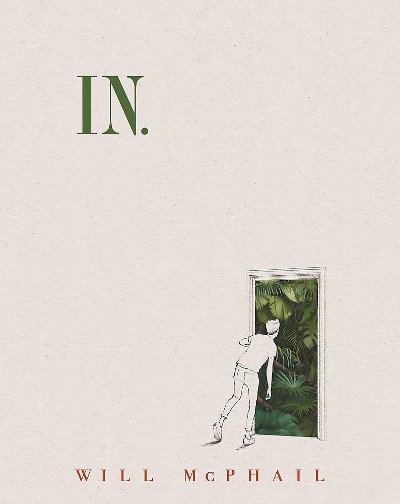
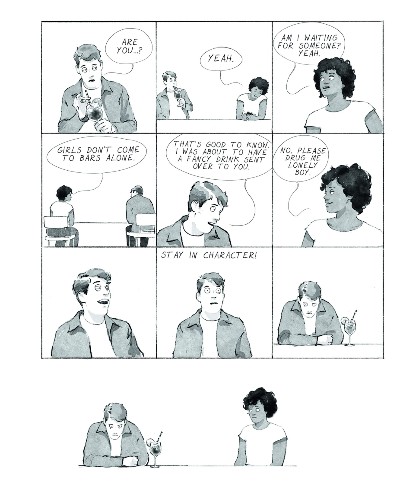
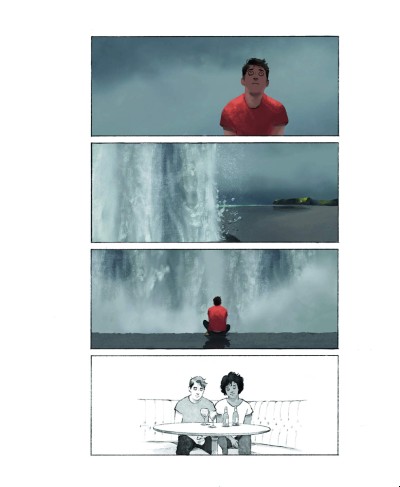




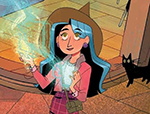
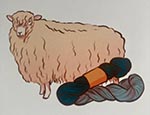
[…] • Lindsay Pereira reviews the poignant humor of Will McPhail’s In. […]